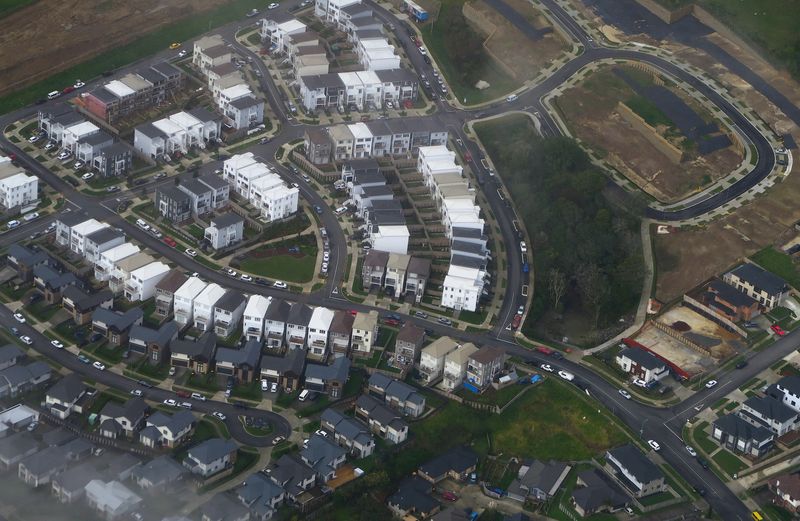By Vivek Mishra
BENGALURU – New Zealand’s house prices are forecast to sink 9.0% this year as aggressive interest rate hikes take some heat out of the blazing housing market amid a worsening cost of living crisis, keeping potential buyers on the sidelines, a Reuters poll found.
House prices have nearly doubled in the last seven years as investors have cashed in on near-zero interest rates and access to cheap loans. That has led to increased homelessness and fuelled inequality, making New Zealand’s the most unaffordable housing market among developed nations.
Although house prices have already started to come off their highs, they are still very far from returning to their pre-pandemic levels.
The 9% decline predicted for this year in the latest Reuters poll of 11 property market analysts taken May 11-26 is much larger than the 0.8% fall predicted in a February poll.
House prices are forecast to decline a further 2.0% in 2023.
“The cost of housing in New Zealand is a national embarrassment. The reasons are deep-seated. Ultimately it comes down to the fact that new housing supply just hasn’t been responsive enough to periods of rising housing demand,” said Jeremy Couchman, senior economist at Kiwibank.
Couchman forecasts house prices will fall a little more than 10% this year in what he calls a “short and sharp” correction.
While such an expected fall was a long time coming, the drop may be too small to offer much reprieve for first home buyers after prices soared over 250%, almost four times the average increase across OECD countries.
The Reserve Bank of New Zealand, which considers house prices as one factor in its policy deliberations, has already hiked interest rates by a total of 175 basis points since October last year and signalled on Wednesday a lot more tightening was to come.
It expects home prices to drop by around 20% or more before they reach sustainable levels.
ANZ, Macquarie Bank, Infometrics and Real Estate Institute of New Zealand (REINZ) said average house prices would have to fall between 30-50% – roughly the amount they fell after the oil shock of 1973 – to make housing affordable.
While lower house prices would help the government’s affordability objectives, it would be a bitter pill to swallow for very recent homebuyers, watching their capital decline and facing higher repayments as interest rates rise.
“Increasing interest rates will hinder the ability to service mortgages…lending restrictions, including minimum deposit, will hurt first-time homebuyers who don’t have support from the bank of mum and dad to raise the initial deposit,” said Ankur Dakwale, research analyst at Bayleys Realty Group.
When asked to describe the level of New Zealand house prices on a scale of 1 to 10, from extremely cheap to extremely expensive, the median response was 9. For Auckland, it was 10.
Still, not everyone expected prices to fall this year. REINZ and Infometrics forecast house prices to rise 5.0% and 4.1% this year, respectively.
“Sentiment from buyers has changed from a fear of missing out to a fear of overpaying and this all has a suppressing effect on house price increases,” said David Shaw, property market analyst at REINZ.
“(But) even a drastic slowdown in house price increases from the past year will still leave moderate increases in place.”
(For other stories from the Reuters quarterly housing market polls:)
(Reporting by Vivek Mishra; Polling by Prerana Bhat, Arsh Mogre and Md Manzer Hussain; Editing by Ross Finley and Kim Coghill)
